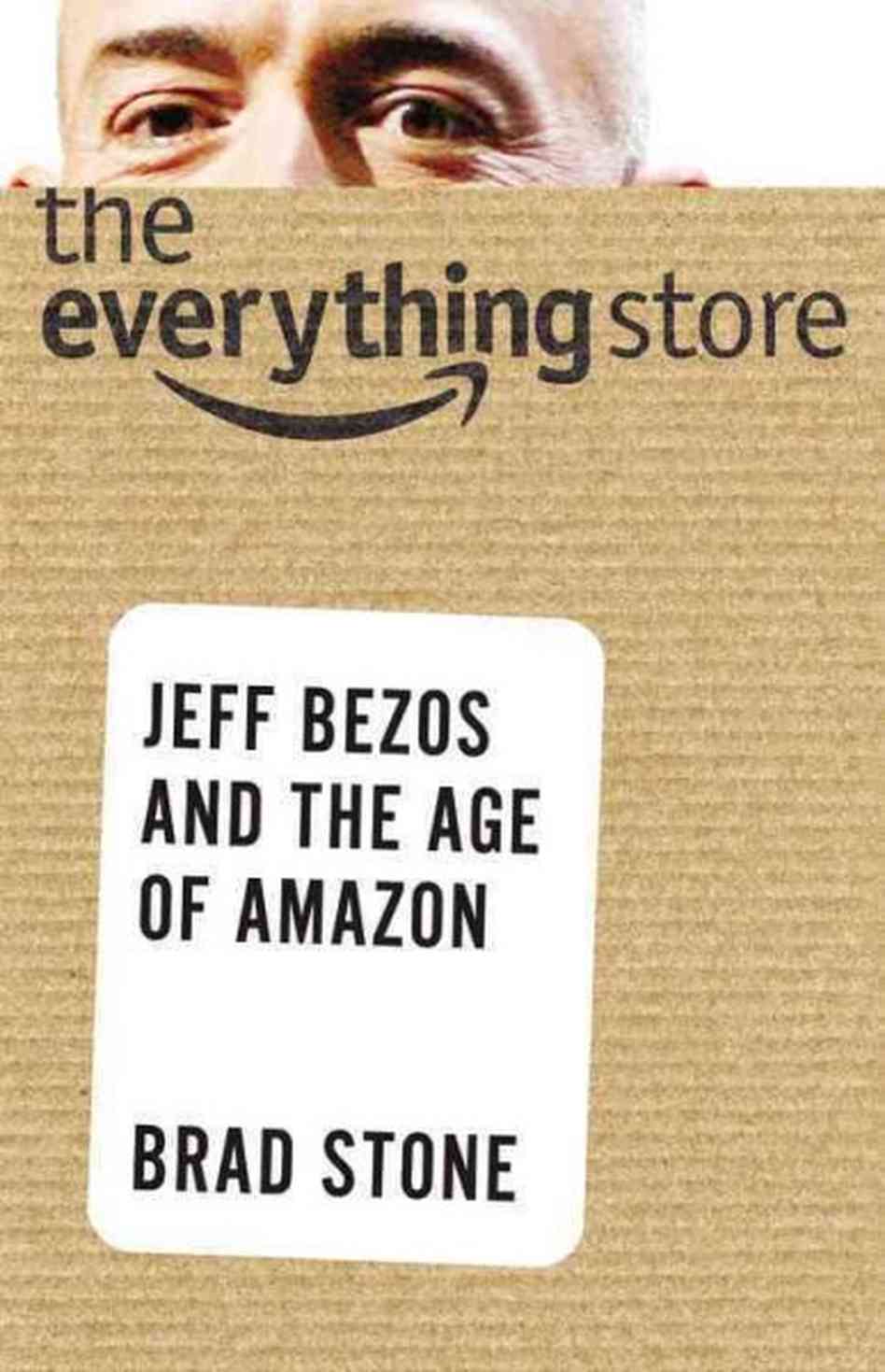Though Jeff Bezos just bought The Washington Post, he’s notoriously press-averse, favoring schmoozers like Charlie Rose over real reporters like Brad Stone of Bloomberg BusinessWeek, whose The Everything Store: Jeff Bezos and the Age of Amazon (Little Brown, $28) went on sale this week—on Amazon, too. Stone had to do a write-around, without interviewing Bezos directly for the book. On Tues., Oct. 22, Stone will join The New York Times’ Nick Wingfield to discuss Bezos and his company. (Town Hall, 1119 Eighth Ave., 652-4255, townhallseattle.org. $5. 7:30 p.m.) By email, we recently asked Stone about his book, starting with issues of access.
SW: Was Bezos reasonably helpful in approving sources to interview? Did you get him off-record? Friendly or no?
Stone: I feel like I got farther with Amazon than any other journalist in the past, perhaps because I’ve covered the company for so long. I spoke with several members of the leadership team, called the S Team, and current and former employees up and down the ranks. I’ve spoken to Jeff about a dozen times about various product announcements over the years (including last week) and used some of that material. While he prefers to focus on the future and not the past, he told me he was “rooting” for me. That was nice to hear, and he definitely approved interviews with some of his friends, and with his parents Jackie and Mike. I heard he told them, “Just tell the story.”
Is Bezos any less of a hard-ass than Jobs, Gates, Ellison, or other tech billionaires?
He’s as demanding as some of those other figures. He expects the best work that his employees have to offer. While uncomfortable, it probably accounts for a good deal of Amazon’s success today.
Should we care, seeking low prices on the consumer end, how Amazon treats its warehouse workers and other employees? Should shareholders care? Does Bezos care?
We should definitely care. Our overall retail expenditures end up shaping the prospects of merchants big and small and ultimately affect the character of our communities. If you want a local bookstore down the street, you better shop there—or it will go away.
Amazon treats its workers relatively well, compared to the overall fulfillment industry. They have made mistakes—the air-conditioning imbroglio being the big one—but they also corrected it after it was exposed. I think Amazon management cares to a point—they instituted a tuition reimbursement program—but they are also set on maintaining a cost structure that allows for the lowest possible prices online. And that means Amazon FC workers will not be living a life of luxury, nor enjoying 30 minute breaks, any time soon. The jobs are hard—all fulfillment jobs are difficult—especially during the holidays.
In Seattle, Amazon has a poor rep as a place to work versus Costco. Is that an online-versus-retail dichotomy never to be reconciled? Or a top-down company culture created by Bezos?
Costco’s wonderful workplace environment is the result of two factors; 1) the politics of its founder, Jim Sinegal, and the paternal workplace that he created at Costco more than 20 years ago. And 2) the fact that the membership model allows this generous pay compared to other retailers. Customers pay to shop at Costco. Those annual dues let Costco keep its prices low and pay its workers extraordinarily well.
Do you shop on Amazon and trust it with your data?
I am an avid Amazon customer; I’m a Prime member, a Kindle and Kindle Fire owner, and an Amazon Video on Demand user. (I also buy all my kids’ books and at least half of my own at my local bookshop in Noe Valley, San Francisco.) I love it all except Amazon’s music service. Right now I’m ready to chuck that one out the window—it’s not working on my Android phone and I find it unnecessarily confusing. Thanks for letting me vent that!
Should Amazon employees, not to be traced, buy your book in cash at their local bookstores?
They shouldn’t have to buy it at all! Amazon should furnish each employee with a complimentary copy, as it tells the amazing story of the company’s impossible rise against many odds. Plus, I need the sales.
Bezos gets the rap here in liberal Seattle of being a non-philanthropic, selfish, non-Gatesian tycoon. Do you think he’ll surprise us later in life?
Venturing somewhat into speculation, I believe the Bezos family engages in a lot of philanthropic work that the world simply doesn’t know about, because they choose not to publicize it. They are very private.
Would Bezos, if able, swat and kill Walmart like a bug?
Walmart is many times the size of Amazon, in large part because it has expanded all around the world, whereas Amazon is still largely in only a handful of countries. The question is can Walmart get its act together to swat and kill Amazon. I’m sure the Amazon crew has one eye fixed firmly on their biggest retail rival.
Editorially, do you think Amazon’s dominance in e-commerce is a good thing or a bad thing? Should we buy the stock and expect further growth?
As a shopper, I think it’s great—Amazon makes it incredibly easy to get everything you want quickly and easily. As an observer, I do worry. The fact that Amazon always needs to match the lowest price, and that it’s both a retailer and a marketplace for other sellers, creates a powerful downward pressure on prices. There is a race to zero, so to speak. And we have seen previously with Walmart that when this happens, local businesses go under, and manufacturers move jobs overseas. So as Amazon gets bigger, it has the potential to exacerbate some of these macroeconomic effects.








